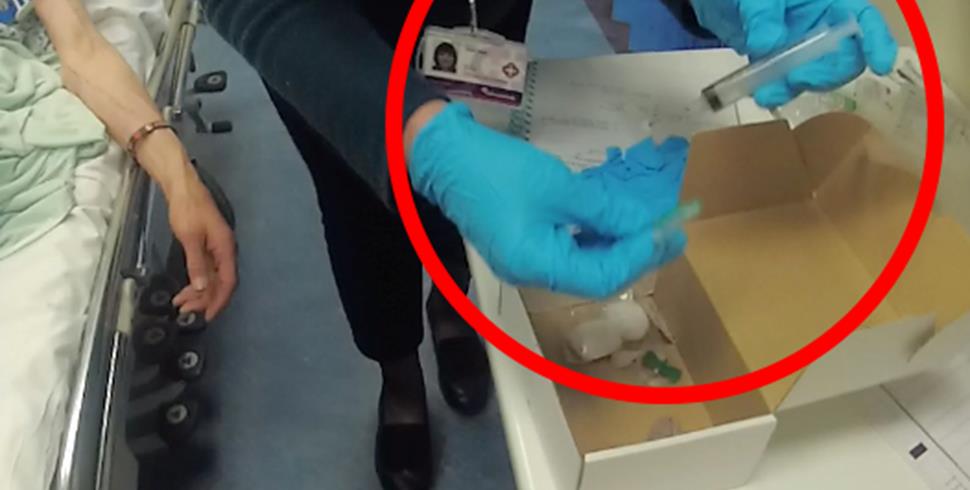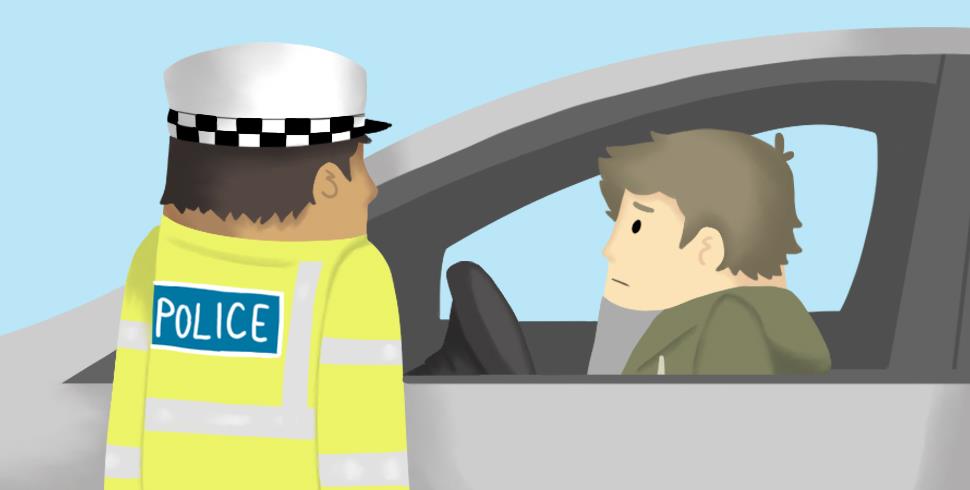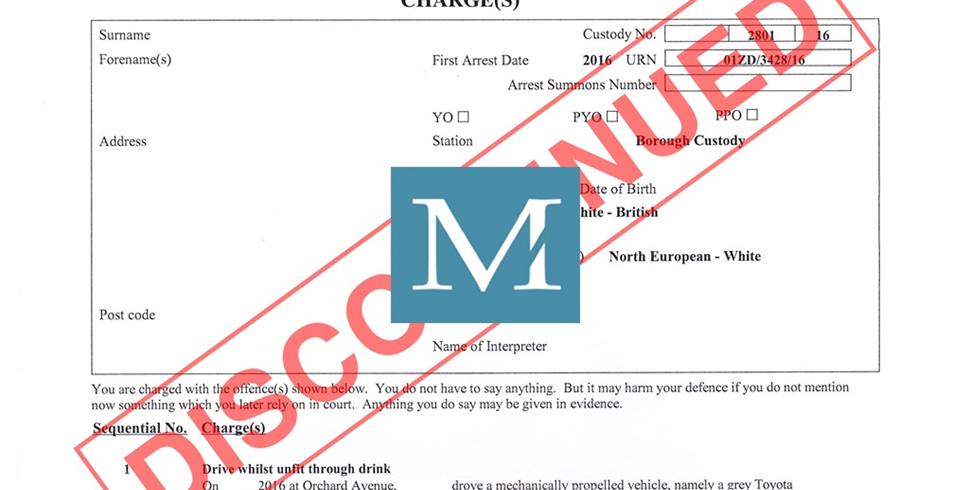
Drink, drug driving & failing to provide offences are serious criminal offences that can result in a custodial sentence. For Doctors in the medical profession, a criminal conviction can result in the loss of employment, particularly if you work within the National Health Service. A recent study found that less than 1% of practising NHS Doctors have criminal convictions, suggesting that those who are convicted of criminal offences are likely to lose their job. Of course, the risk of a dismissal depends upon the type of medicine you practice. If your post involves a greater degree of contact with children or vulnerable adults, you will be subject to tighter controls; and therefore more likely to lose your doctor's licence. Cases involving aggravating factors (such as a high reading, a collision etc…) are considered more serious.
As a Doctor you are required to be part of the British Medial Association or the General Medical Council (GMC). All members have an ongoing duty to disclose any ‘criminal conviction’, even if you’ve not yet been convicted (this includes a criminal charge or if you've been 'released under investigation'). The GMC has released guidance on criminal convictions and regulatory proceedings. For the avoidance of doubt, drink and drug driving can result in immediate prison (but only in the most serious cases).
What are you required to report to the BMA/GMC?
- all matters currently under investigation (this includes cases where you’re awaiting blood or urine results)
- any conviction, caution or investigation in relation to a criminal offence
- investigations or determinations by any of the other UK health regulatory bodies, as well as by a primary care organisation
Note: Motoring offences which result in a charge or summons to appear before a criminal court require disclosure to the GMC. The GMC do not routinely investigate speeding offences unless there are specific aggravating features which raise a question about the doctor’s fitness to practice.
What you must do
Inform the GMC without delay if, anywhere in the world, you:
- formally admit to committing a criminal offence (for example by accepting a caution)
- are charged with a criminal offence
- are found guilty of a criminal offence
- receive a warning for the possession of cannabis
- are given an Anti-Social Behaviour Order whether as the result of civil or criminal proceedings
- have had your registration restricted, or have been found guilty of an offence by another medical or other professional regulatory body
For offences relating to alcohol or drugs (including failing to provide offences), the GMC would normally invite you to undergo an assessment of your health. Upon receipt of the health assessment reports and other requested investigation information, advice may be sought as to whether it would be appropriate in the circumstances to conclude the case by issuing the doctor with a formal warning, undertakings or other disposal (such as a dismissal).
Why you must disclose
- Fitness to practice - Police forces inform the GMC when a doctor is charged with an offence, cautioned or convicted of a criminal offence. Doctors are also required to inform the GMC directly about these matters.
- Fixed penalty notices - The commission of offences dealt with by Penalty Notices for Disorder at the upper tier penalty level may raise questions about a doctor’s fitness to practice and must be reported to the GMC.
- Using or possessing illegal drugs - The use or possession of illegal drugs (including cannabis) may raise a question about a doctor’s fitness to practice, so you must also tell the GMC if you receive a warning for such offences.
- Anti-social behaviour orders - Anti-social behaviour orders (ASBOs) are court orders which prohibit the perpetrator from specific anti-social behaviours and may raise questions about a doctor’s fitness to practice, whether they are issued as a result of criminal or civil proceedings.
Negotiating to secure a caution
If you have been charged or suspected of committing a criminal offence, please contact us immediately. You are far more likely to keep your job if you receive a caution (as opposed to a criminal conviction). We specialise in negotiating with the police to secure cautions before court hearings. We may even be able to persuade the prosecutor in court to refer the case back to the police for a caution to be issued.
Guidance from the General medical Council (GMC) advises that:
You must inform the GMC without delay if, anywhere in the world, you have accepted a caution, been charged with or found guilty of a criminal offence, or if another professional body has made a finding against your registration as a result of fitness to practice procedures.
Registration with the General Medical Council or General Dental Council imposes on doctors and dentists a duty to provide a high standard of medical care for, and behave appropriately towards patients. Employers within Health and Social Care also have a duty to ensure that patients receive a high standard of medical care and ensure as far as possible the safety of patients. Employers therefore need to establish if you have been found guilty of a criminal offence, been bound over or cautioned or are currently the subject of proceedings which might lead to a conviction, an order binding you over or a caution, in the UK or any other country.
More information about your responsibilities as a doctor can be found at the British Medical Association Website and the General Medical Council Website.
FAQ’s
If I have a criminal conviction, can I still be employed?
This will depend on whether your offence is considered to make you unsuitable to have access to patients. We conduct a greater level of checks on staff who work with certain patient groups, such as children and vulnerable adults. We will however consider a range of factors before making our decision to appoint -the nature of the offence -the age at which it was committed -its relevance to the post in question -whether the applicant has a pattern of offending behaviour -whether the applicants circumstances have changed since the offending behaviour -the circumstances surrounding the offence and the explanation(s) offered by the convicted individual.
Why does the NHS ask for disclosure of criminal convictions?
We do this to protect our patients. In doing this, we balance the need to prevent unsuitable people from working in sensitive posts, against the threat of discrimination against rehabilitated ex-offenders.
What positions can the NHS obtain disclosures for?
The Police Act 1997 enables Disclosure Barring Service (DBS) record checks to be requested by employers on any individual who is working in a role listed in the Rehabilitation of Offenders Act 1974 (Exceptions) Order 1975, which includes any employment which is concerned with the provision of health services and which is of such a kind as to enable the holder of that employment or the person engaged in that work to have access to persons in receipt of such services in the course of their normal duties.. Not all NHS staff are eligible for a DBS check if will depend if their role falls within the Exceptions Order. (NHS Employers definition)
What is a criminal record?
A record of convictions held on the Police National Computer for individuals convicted of crimes. The Police National Computer contains information about criminal records, i.e. convictions, cautions, reprimands and warnings.
What is a Disclosure Barring Check?
Our organisation undertakes criminal records checks for some posts. A Standard DBS check is used primarily for posts that involve working with children or vulnerable adults. They may also be used to check staff working in other roles, e.g. accountancy related jobs. For those posts that involve a greater degree of contact with children or vulnerable adults, i.e. the type of work that involves regularly caring for, supervising, training or being in sole charge of such people, candidates will require an Enhanced DBS check. For both, we are checking candidates to see if they have any convictions, current and spent, as well as cautions, reprimands and final warnings. The enhanced check also provides a check on local Police records. We also make checks on staff working with children against the POCA (Protection of Children’s’ Act) List. This contains names of people who are banned from working with children.
What is the Rehabilitation of Offenders Act (ROA) 1974?
The ROA 1974 enables some criminal’s convictions to become ‘spent’ or ignored after a rehabilitation period. A rehabilitation period is a set length of time from the date of conviction. After this period, with certain exceptions, an ex-offender is not normally obliged to mention the conviction, when applying for a job. In the NHS, there are certain circumstances / jobs that a conviction must be declared, e.g. a nurse working on a children’s ward.
What is a spent conviction?
The Rehabilitation of Offenders Act 1974 sets out to make life easier for many people who have been convicted of a criminal offence, but then have had a period in which they have not committed any further offences. In general, the more severe a penalty is the longer the rehabilitation period. Once a rehabilitation period has expired and no further offending has taken place, a conviction is considered to be ‘spent’. When assessing the suitability of a person for a position of trust, a potential employer is entitled to ask a job candidate to reveal all convictions, whether spent or not. This is to ensure that children and other vulnerable groups are adequately protected from those in positions of authority over them, e.g. a nurse who looks after children.
What is an ‘unspent’ conviction?
A conviction is described as ‘unspent’, if the rehabilitation period associated with it has not yet lapsed. A rehabilitation period is a set length of time from the date of conviction, according to the sentence imposed.
How do I know if the job I am applying for is required to provide details of all convictions, spent or unspent?
There are some jobs which are not covered by the Rehabilitation of Offenders Act 1974. These are jobs which are positions of trust and are ones which involve a far greater degree of contact with children or vulnerable adults, e.g. a nurse working on an adults’’ ward or a cleaner on the Emergency Department. For these types of jobs, the employer is entitled to see a person’s full criminal history in order to assess their suitability for a position.
What is a caution?
A caution is a formal warning about future conduct given by a senior police officer, usually in the police station, after a person has committed an offence. It is used as an alternative to a charge and possible prosecution.
If I am recruited from abroad, will I still be checked for criminal records?
Yes – we will carry out necessary police checks in line with that country’s justice system and UK requirements.
Is an overseas police check an acceptable alternative to a DBS check?
This is dependent on the length of your residency in the UK and the post you are required to cover. Overseas authorities do not have access to UK Police records, or relevant information held on the Governments PoCA & PoVA lists. Your organisation might normally accept a recent overseas police check providing the above criteria is met.
Can I refuse to apply for a DBS check?
Yes. However, there are some posts for which a CRB check is required by law. If you refuse to apply for a DBS check in this instance, the organisation may not be able to take your job or licence application any further.
How long does the application process take?
You should normally receive a copy of your CRB check within 4 weeks however at certain times of the year, the DBS has a backlog of applications to process which may cause a delay in their response. Enhanced checks normally take longer than standard checks.
Who has access to my personal information and DBS disclosure?
Your personal information will only be seen by those whose jobs require them to do so in the course of their duties.
Why do I have to re-apply for a new DBS check each time I move jobs?
It is good practice for individuals who work with children to be re-checked every 3 years
My personal details have changed since I received my Disclosure. Do I need to inform the DBS?
No. The DBS issues Disclosures based on the personal information that is provided to them at the time of application.
Related Articles


Conor Johnstone
04 October 2022Case Dismissed – Prosecution failure leads to collapse of drug driving case


Conor Johnstone
26 October 2021Drink Driving & Drug Driving Mitigation and Hardship | Free Advice




